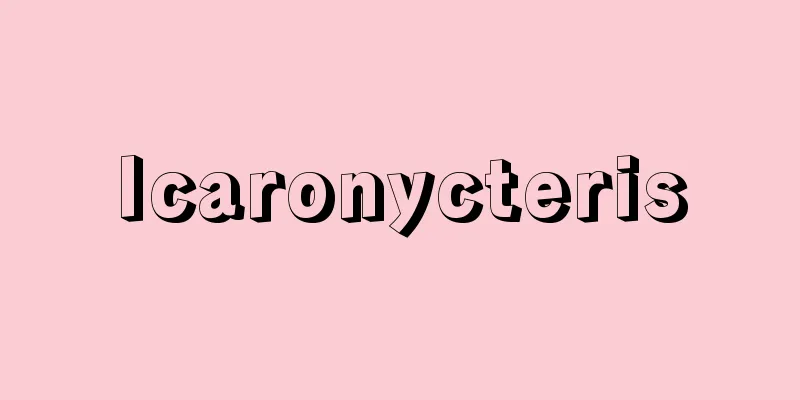Culture - Education

|
Culture refers to the effort and results of cultivating a high and well-rounded personality and enriching the human spirit. Our spirits tend to be limited to specialized knowledge or specific professions, but the ideal of a cultured person is to develop them in a wide range of fields, including academics, art, and religion, and become a holistic and harmonious person. Culture is sometimes expressed as "general culture" when focusing on specialized or professional knowledge. As can be seen from the fact that the original English and French word culture comes from the Latin cultura (cultura), which originally meant cultivating the land and growing crops, it has been transformed into "cultivation of the mind" and is understood to mean cultivating the human mind. The expression "cultura animi" (cultivation of the mind) was first used by the ancient Roman Cicero. The materials for cultivating and enriching the mind have evolved differently depending on the era and society, but in Europe, the concept of liberal arts from ancient Greece and Rome has been passed down. In Greece, the ideal was a holistically cultured person in which the mind and body were in harmony, and the knowledge that one should learn to achieve this was presented as academic subjects, which eventually developed and were passed down as the seven liberal arts. The ancient concept of liberal arts was revived in Renaissance humanism, and in the second half of the 18th century, it was reinterpreted in the German Neo-Humanist movement as a way of relearning the spirit of classical culture and creating and developing it anew. However, liberal arts tend to be biased toward the classical and academic, and to become an end in itself, so in today's world, where science and technology have developed rapidly and social life has changed dramatically, new content of liberal arts is required. [Keiji Suwanai] Source: Shogakukan Encyclopedia Nipponica About Encyclopedia Nipponica Information | Legend |
|
人間の精神を豊かにし、高等円満な人格を養い育てていく努力、およびその成果をさす。とかく専門的な知識や特定の職業に限定されやすいわれわれの精神を、広く学問、芸術、宗教などに接して全面的に発達させ、全体的、調和的人間になることが教養人の理想である。教養はとくに専門的、職業的知識を意識した場合、「一般教養」と表現されることがある。教養ということばの原語である英語やフランス語のcultureがラテン語のcultura(耕作)からきていることからわかるように、土地を耕して作物を育てる意味だったものを「心の耕作」に転義させて、人間の精神を耕すことが教養であると解されている。その「心の耕作」cultura animiという表現を初めて用いたのは古代ローマのキケロである。 心を耕して豊かにするための素材は、時代や社会によって異なって展開されてきたが、ヨーロッパでは古代ギリシア・ローマ的な教養の概念が受け継がれてきている。ギリシアでは精神と肉体が調和した全人的教養人が理想とされ、そのために学ぶべき知識が学科目として提示され、それがやがて自由七科へと発展、継承されていった。古代の教養の概念はルネサンス人文主義のなかによみがえり、さらに18世紀後半にドイツの新人文主義運動のなかで、古典文化の精神を学び直し、それを新たに創造、展開し直すという形でとらえ直された。しかし、教養は古典的、学問的に偏り、それ自身が目的となるきらいがあるため、科学・技術が急速に発達し、社会生活も大幅に変化した現代では、教養の新しい内容が求められている。 [諏訪内敬司] 出典 小学館 日本大百科全書(ニッポニカ)日本大百科全書(ニッポニカ)について 情報 | 凡例 |
Recommend
Cottage organ
… [Reed Organ] In the mid-19th century, a new typ...
Kishimen (Japanese noodles) - Kishimen
A type of udon. It is also written as gokomen. In ...
Güemes Pacheco de Padilla, JV - Güemes Pacheco de Padilla
The viceroys who ruled the Indies for 300 years w...
Phalchan Kangri (mountain)
A high peak belonging to the Baltoro Mustagh in th...
Kamin
… [Jajmani relationship] The landlord or the agri...
Tolerance - tolerance (English spelling) from Latin
Tolerance of different positions without regardin...
Azad Kashmir - Azad Kashmir
...The border with China on the Indian side remai...
Nuestra Senora (English spelling)
...) and is rarely called Maria. In the West, esp...
monoplegia
… [Paralysis of the trunk and limbs] Paralysis of...
Anaphylaxis
Definition and Concept Anaphylaxis is a systemic r...
Jacques Specx
A Dutchman who played an important role in Japan-...
Kuguno [town] - Kuguno
A former town in Ono County in the central north o...
The Gösta Berlings saga - The Gösta Berlings saga
A novel by the Swedish author Lagerlöf. It was the...
Nose Asaji
A scholar of Japanese literature and a researcher...
Telephone exchange - Denwakōkan
The act of connecting the telephone line of a pers...

![Kikuka [town] - Kikuka](/upload/images/67cb4f78cf14a.webp)







